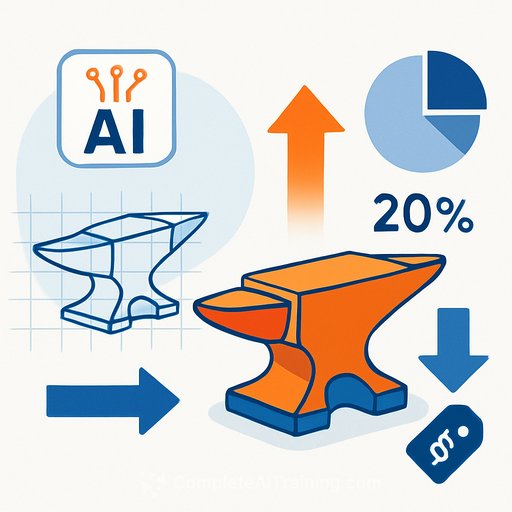Building a Responsible AI Future in Saudi Arabia
Saudi Arabia is accelerating its adoption of artificial intelligence (AI) as part of its broader economic diversification strategy. Among Gulf Cooperation Council (GCC) countries, the kingdom is making significant strides to become a global AI leader.
At this year's World Economic Forum, Saudi Arabia emphasized its commitment to advancing the digital economy and fostering innovation. Recent data shows that 50% of the kingdom's deep tech startups focus on AI and the Internet of Things (IoT). The nation aims for AI to contribute 12% of its GDP by 2030. In 2023, Saudi Arabia ranked 14th globally and first in the Arab world on the Global AI Index.
Major investments back this vision, including a $40 billion fund targeting AI development. This fund supports opportunities for chip manufacturing and large-scale data centers. The kingdom is also building international partnerships to improve Arabic AI models.
AI as a Catalyst for Economic Growth
AI is poised to drive growth across multiple sectors in Saudi Arabia. In healthcare, AI supports early disease diagnosis, predictive care, and pandemic prevention. The transportation sector is exploring AI-powered ride-sharing and autonomous vehicles. Finance benefits from AI through personalized financial planning, fraud detection, and anti-money laundering efforts.
In energy, AI improves efficiency with smart grids, real-time monitoring, and renewable integration. Sustainability efforts also rely on AI for carbon footprint tracking, climate change mitigation, and optimizing resource use in agriculture and water management.
However, as AI adoption grows, so do the risks related to data privacy, governance, and ethics. AI systems require vast amounts of personal and sensitive data, making strong governance essential to prevent breaches, bias, and regulatory non-compliance. Organizations must prioritize data quality, integrity, and compliance to ensure fair and accurate AI outcomes.
With 90% of GCC business leaders expecting AI to improve workflows and 81% anticipating new product and service development powered by AI within three years, strong governance frameworks are critical for managing these technologies responsibly.
The Need for Ethical and Transparent AI
Effective AI governance involves setting ethical guidelines, ensuring transparency, and managing risks associated with AI deployment. Here are eight key solutions to consider:
- Ethical guidelines: Establish clear principles to ensure fairness, transparency, and accountability in AI development and use.
- Risk management: Implement risk assessment processes to identify and mitigate ethical, reputational, and technical risks.
- Regulatory compliance: Stay current with relevant laws and standards to avoid legal challenges and protect reputation.
- Cross-functional collaboration: Involve stakeholders from legal, IT, HR, and other departments to cover all perspectives in AI governance.
- Model validation and monitoring: Set criteria to evaluate AI models for accuracy, fairness, and adherence to ethical standards.
- Continuous monitoring: Regularly track AI system performance to detect issues early and maintain alignment with organizational values.
- Feedback loops: Create channels for user and stakeholder input to continuously refine AI systems based on real-world needs.
- Certification: Consider adopting international standards like ISO 42001 to ensure responsible AI deployment.
Looking Ahead: A Call for AI Governance
Increasing AI adoption means the challenge is no longer just implementation, but leading with responsibility. Saudi Arabia’s Data & AI Authority (SDAIA), established in 2019, plays a central role in shaping AI regulations and ethical frameworks.
The kingdom ranks third globally in the OECD’s AI Policy Observatory, just behind the US and UK, demonstrating its commitment to AI governance. Trust is fundamental to AI’s success. Without transparency and accountability, AI risks undermining its own credibility.
Saudi Arabia’s substantial investments, forward-looking regulations, and ethical approach position it to set a global example for responsible AI adoption.
Your membership also unlocks:










